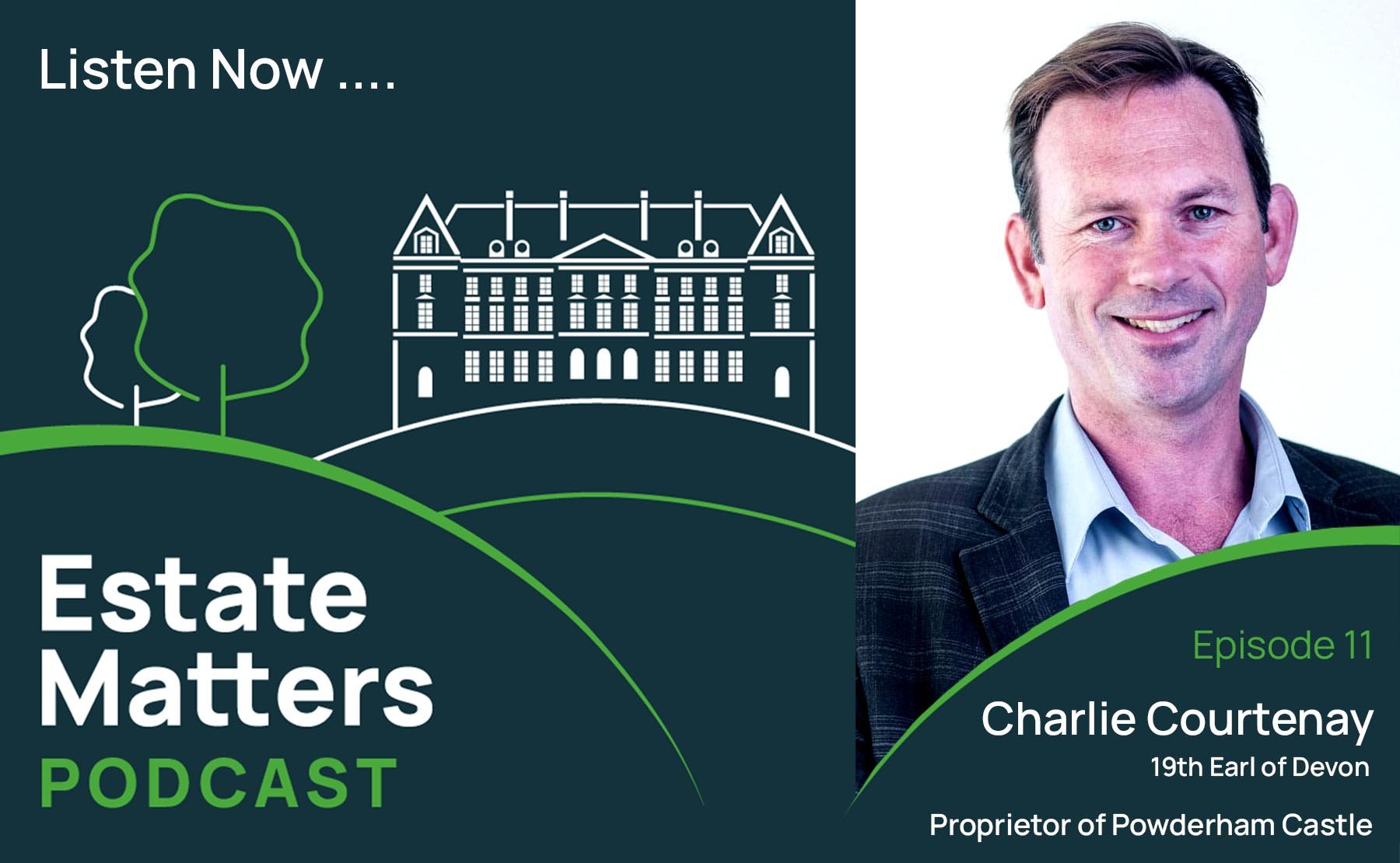Estate Matters Episode 11: Lord Charlie Courtenay | The 19th Earl of Devon on the modern management of Powderham Castle Estate
Charlie Courtenay, barrister, parliamentarian and proprietor of the 3,500-acre Powderham Castle Estate in Devon, says he sees the business as an 800-year-old start up social enterprise with the potential for long-term sustainable growth.
Charlie, who became the 19th Earl of Devon and inherited the Estate on the death of his father in 2015, is the latest guest to feature on the Estate Matters podcast.
He speaks frankly to podcast host Anna Byles about the challenges and the potential for Powderham Castle and its surrounding farmland and forestry, on the west bank of the Exe estuary, near Exeter.
Charlie sits in the House of Lords as a crossbench peer and works as a barrister specialising in intellectual property and technology disputes for Exeter and London-based solicitors Michelmores, while also running the Powderham Estate.
He tells Anna: “I see Powderham as a sort of 800-year-old start up SME. Yes, it’s been around a long time but it’s constantly reinventing itself, constantly keeping up with the times and so in many respects it’s a modern, forward-looking business, but it has this wonderful long-term legacy that allows us to share and tell stories.”
“I hope that when my children come to have the opportunity to take on Powderham, it’s the kind of business that will be exciting, both from a commercial, financial perspective but also from a cultural and social perspective too.”
The Courtenay family owned land in Devon from the 1200s, but became established at Powderham after, as Charlie says, “We married Edward I’s granddaughter in 1325.” The castle was built in 1390 and is one of Devon’s oldest continually occupied homes.
The estate, made up of estuary foreshore, a deer park, farms, managed forestry and a portfolio of residential and commercial property, also now boasts a big events business with music, food and garden festivals, Christmas lights and is a popular wedding venue. The Castle is also open to visitors.
Charlie says: “Part of what makes Powderham – and I suspect many other heritage estates – so valuable, is that breadth of activity.” But he notes that many landed estates no longer have the main house at their centre.
“I can very much see why,” he says. “Powderham would be a more viable commercial enterprise if it didn’t have to support the castle at its heart, but it would also lose its heart.
“The purpose of a broader landed estate, traditionally and from ancient days, is to support a landmark building, which is a landmark not just for the family and those that work there, but the community that is round and about.”
That recognition of community extends to keeping people informed and sharing news of what you are doing, Charlie says, adding: “You are only as good as the neighbourhood you inhabit.”
He’s a big supporter of the principle of providing public money for public goods and has engaged actively with the challenges of extending access to private land – an issue he recently raised in a debate in the House of Lords.
He tells the Estate Matters podcast: “We’ve had IRA bombs buried on the Powderham Estate, in the woods; we’ve had sheep bludgeoned to death with baseball bats; we’ve had tree disease – very rare chestnut blight in the woods. Then you’ve got dogs worrying livestock…I’m a proponent of access, I think it’s important our land is available to our communities, but it has to be managed.”
Charlie says he sees landed estates as social enterprises. “There’s no shame within a social enterprise model of making a profit, making a commercial gain,” he says. “Certainly, Powderham is run with a view to any profit that is made being rolled back into the future of the land and buildings.”
That, he believes, will give the Estate the long-term sustainability to ensure it thrives, long into the future, under generations to come.

